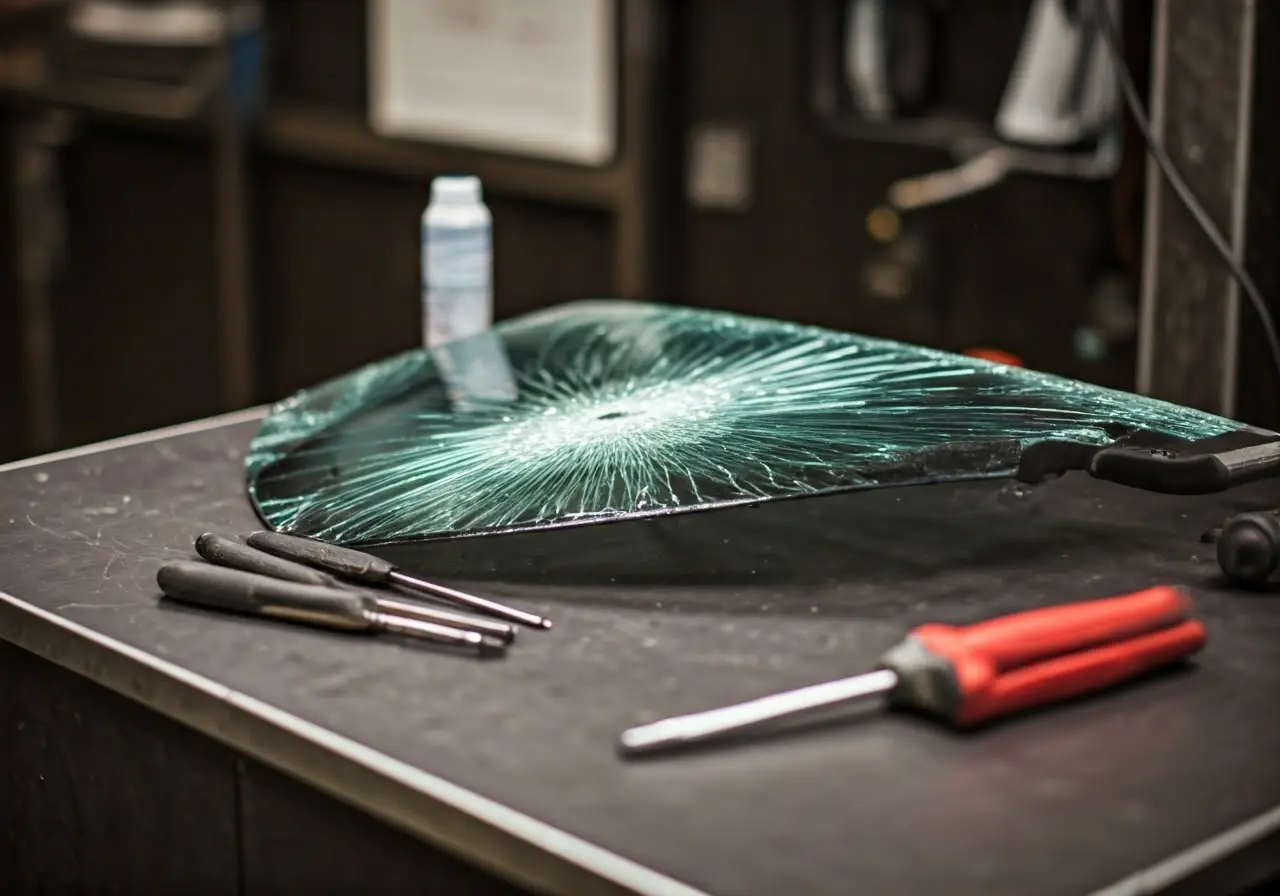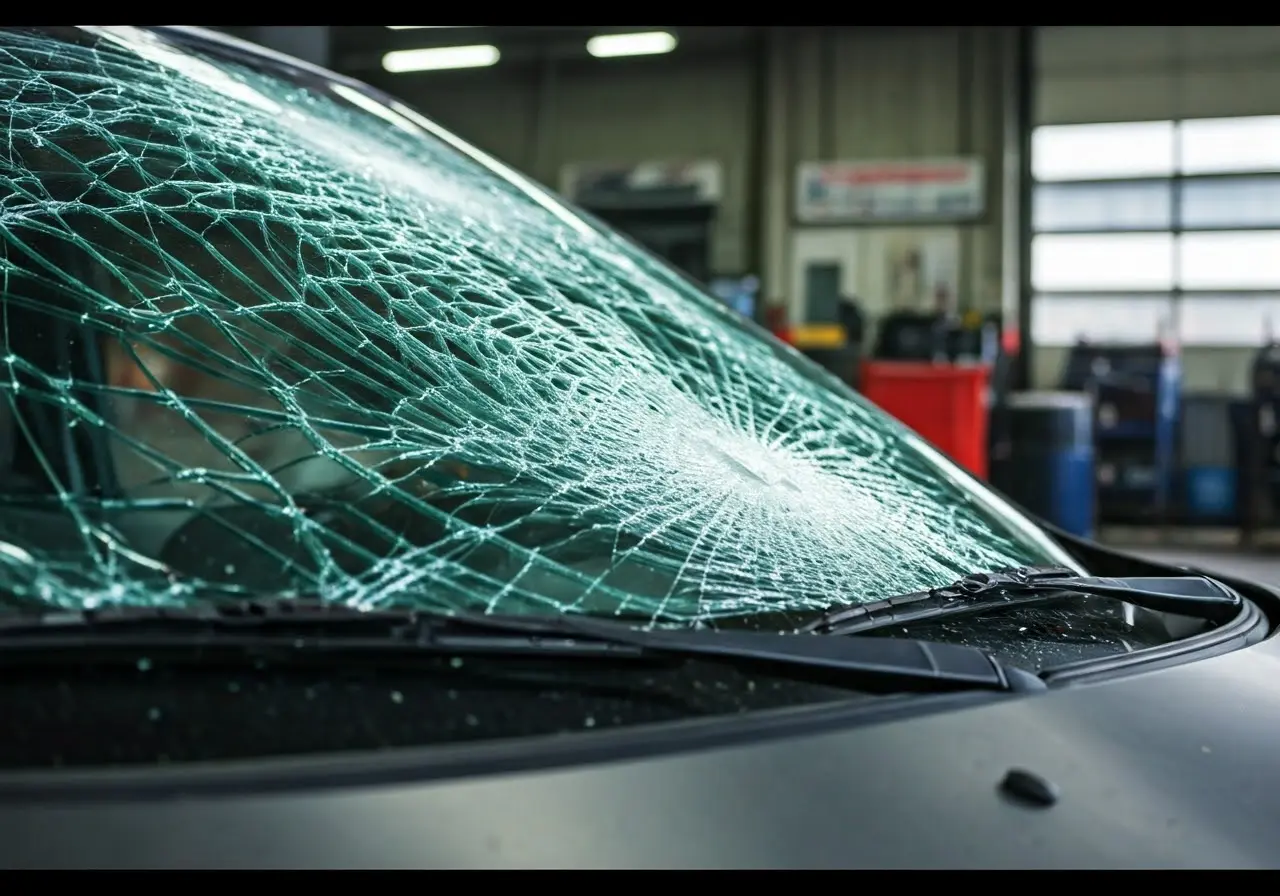Choosing between repairing or replacing a windshield can be a bit confusing. Both options offer unique benefits, but understanding when to opt for a repair or go for a full replacement is crucial. In this FAQ, we’ll break down the differences to help you make an informed decision.
What is Windshield Repair?
Windshield repair is a process where small chips and cracks in the glass are fixed using a special resin. This method helps prevent the damage from spreading and restores the structural integrity of the windshield. This technique is particularly beneficial for maintaining the original seal of the windshield, which can be an advantage over replacement in some cases. Aspects like the location and size of the damage significantly influence the decision and potential for repair.
Typically, this repair method is best when dealing with damage that is minor, not larger than a quarter, and located away from the critical zones such as the driver’s line of sight. The process involves cleaning the damaged area and injecting a clear resin that bonds the glass together. This resin not only helps maintain stability but also enhances visibility by blending the damage into the glass. It’s a cost-effective option for many car owners facing minor windshield damage.
Using resin to repair can mitigate further damage and extend the life of the windshield. However, it’s important to conduct repairs promptly to avoid escalation, as small chips can easily grow due to temperature changes or movement. You’ll likely find that addressing small chips early can prevent a future necessity for full replacement, ultimately saving costs.
What to Consider for Windshield Repair?
Repair is typically suitable for small chips and cracks, particularly those smaller than a quarter and not in the driver’s line of sight. The location and extent of the damage are key factors to consider.
Consider the potential for retaining structural integrity after the repair. The ultimate goal is to restore visibility and maintain safety without the need for replacement if feasible. Repairs are often recommended if the damage is not deep or extensively spread across the windshield.
Additionally, if your windshield has experienced more than three chips or if it’s been repaired multiple times, further repairs may not suffice in restoring its original strength. Repeated stress can render the glass less effective against impacts, so consider consulting experts for a thorough assessment.
When is Windshield Replacement Necessary?
Replacement is often required when the damage is large, such as long cracks, or if the chip is directly in front of the driver. It’s also necessary if the windshield is heavily damaged or the integrity is compromised.
When a windshield crack is larger than a dollar bill, it typically cannot be repaired safely and effectively, according to industry standards. Moreover, extensive cracks that threaten to split the windshield into pieces pose a significant safety risk.
To accurately determine whether a replacement is the best option, a thorough assessment by a professional is critical. They can evaluate how the damage affects the windshield’s structural role and if there are any concerns about visibility or resale value that might influence your decision. Consider consulting Big Time Glass for precise guidance.
Cost Comparison: Repair vs. Replacement
Repairing a windshield is usually much more cost-effective than replacement. However, the cost should be weighed against the severity and location of the damage.
Windshield repairs typically range from (70 to )150, while replacements can start at (200 and go up to )2,000 or more, depending on the vehicle make, model, and features such as sensors for driver assistance systems. This is why knowing which option suits your situation can be incredibly cost-effective and safer in the long term.
While costs can be a defining factor, consider how insurance might mitigate these. Many insurance policies cover repairs without a deductible, while replacements often involve sharing some cost out-of-pocket, unless you have specific coverage that includes glass replacement. Understanding your insurance policy can provide financial relief and aid a timely decision.
Safety Implications
Safety is paramount. A repaired windshield retains most of its structural integrity, but severe damage may require replacement to ensure safety in the event of a collision.
It’s important to remember that the windshield serves as a critical safety component of your vehicle, helping to support the roof and ensuring proper deployment of airbags. Proper installation and repair by trained professionals ensure that these features function correctly, which can be life saving in a severe accident.
If in doubt, always opt for professional advice. Big Time Glass advocates for safety first, recommending expert evaluation and repair practices to prevent any compromise in vehicle safety standards.
Choosing the Best Option for Your Windshield
Deciding between windshield repair and replacement depends on the type and severity of the damage. Small chips and cracks can often be repaired quickly and cost-effectively, while more extensive damage or cracks in certain areas might require a full replacement. Always consider safety and consult with a professional to determine the best option for your situation. To ensure you’re making the right decision, check out our comprehensive guide on Windshield Woes. Ready to ensure your vehicle’s safety and visibility? Visit Big Time Glass today for expert advice and service.



